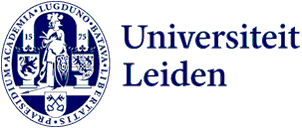
Revolutionizing plant protection strategies: Ding lab receives 2.4M grant to investigate plant immunity
Plant biologist Pingtao Ding, assistant professor at the Institute of Biology Leiden (IBL), has received a 2.4 million European grant from the European Research Council (ERC). This ERC Starting Grant for promising young researchers allows him to unravel the molecular mechanisms by which plants resist pathogens.

‘As a starting group during the pandemic, winning this competitive and generous grant is absolutely cheering,’ Ding proclaims. With his team, he aims at advancing the fundamental understanding of the regulatory mechanisms of genes that are key to the plant immune system.
A finetuned immune response
Plant diseases are widespread and constitute a major threat to food production. ‘We will look to improve strategies for protecting crops from diseases. We will explore the molecular mechanisms in different plant cell types, among different plant species and against different pathogens,’ Ding explains.
‘Plants already have impressive immune systems, and the key to disease resistance is to understand the dynamics,’ Ding emphasizes. ‘The regulation of plant defense gene expression plays a central role. Insufficient expression leads to diseases in the plant, while overexpression can result in autoimmunity and overall decreased life quality. Therefore, it is imperative for a finetuned immune response.’
Hidden components
‘My recent work using systems biology approaches reveals hidden components not found before. The regulatory networks of the defense genes seem essential for plants,’ Ding elaborates. ‘The next challenge lies in establishing how the recognition of pathogens by the plant is converted to changes in defense gene expression and results in effective immunity. My long-term goal is to develop robust tools to control plant pathogens and revolutionize plant protection strategies.’
Encouraging comments for a ‘newbie’
Ding is mindful of all the support he has got. ‘I am very grateful for the help from my family, friends, colleagues, collaborators, Luris grant supporting staffs and particularly my mentors. I am very thankful for all the peer reviewers’ encouraging comments on the projects and constructive criticisms that will help me to improve the program proposed. I also want to thank all the panel members from the Life Science 9 and ERC grant officers, because they have provided a welcoming, friendly and professional interview environment to a grant-application newbie like me for such an intense occasion.’
The ERC Starting Grant
The website of the European Research Council (ERC) states that the ERC Starting Grant is meant for ‘talented early-career scientists who have already produced excellent supervised work, are ready to work independently and show potential to be a research leader’. Researchers of any field of research may apply for the grant.
This year, five Leiden researchers have received the grant.
